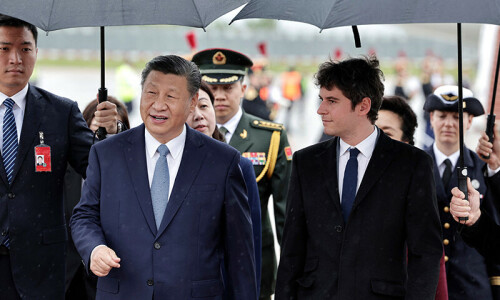
THINK ahead. Some 30 years from now, instead of relying on power distribution companies for electricity to run your home, or covering your terrace or rooftop with solar panels or windmills, you could be living in a house built with power-generating bricks.
“Instead of pulling up at petrol pumps, CNG or LNG stations you could be parking your electric cars in wireless charging car parks,” says Kineret Karin, founder of ImpacTech, a Singapore-based startup.
Or maybe not. “Maybe whatever vehicle you drive then is autonomous, with an inbuilt or portable charger for its battery, which can also be long-lasting hydrogen batteries,” says Tong Chin Foong of Energy Nova, another startup.
If we look back 28 or 30 years ago, mobile phones had just been introduced. People were putting up dish antennas on their roofs and then came the internet. Innovation in these areas has produced the smartphone with internet accessibility that can also bring what we searched the skies for in the name of entertainment. Looking at how far we have come over these years, the possibilities for more innovation are unlimited.
It depends on where the imagination takes us, for the ideas come first. The television series Star Trek featured gadgets that included small, wearable communication devices, transporters, futuristic medical equipment, etc, and fuelled the imagination of inventors and innovators back in the 1960s. There was also George J. Jetson, the dad in the cartoon Jetsons,whom we laughed at and thought of as ungrateful for complaining about being burdened with work that happened to be pushing a button! In fact, doesn’t pushing even the redial button on our phones now seem like too much work? The imagining of such scenarios all those years ago got us where we are today.
But as startups, students and young innovators at the Idea Refinery at the ‘Powering Progress Together’ forum organised by Shell at their Make the Future Singapore festival played with scenarios that could improve lives by 2050, they could also not ignore the flip side of the coin.
A while ago you searched the internet for something or the other and now the top right corner or header of your computer screen flashes similar choices. You download an app in your phone, even to call a taxi, and it won’t open unless you agree to allow it access to your personal data. With every move you make, personalised data is being collected and analysed to make life easier and more comfortable for you.
Yes, it is understood that all this is being done for ‘your convenience’. Even though it may seem like an invasion of your privacy, you are assured that your personal data will not be misused. But: those advertised phones similar to the ones you were checking out on the internet recently, cheaper versions of that cooking appliance you were looking at on a home shopping network the other day, choices flashing on the side of your screen — is all this not influencing you?
Could the data collected about you so harmlessly become a public commodity? And would it be accessible to not just companies but governments, too?
It is only a matter of time before dollars, pounds, rupees etc., will have lost their worth, too. Cryptocurrency would be the way for secure and anonymous transactions. The bitcoin has arrived already.
“Persons living in the modern age carry on them an average of 3.3 devices. There is your phone, your laptop or tablet, Bluetooth, hands-free, power bank, smart watch, etc. So there are more devices than people here,” observes Singaporean television presenter Anita Kapoor at the festival.
These devices need energy to run. Having gathered so much data on the human who has become so dependent on modern-age devices for the smooth running of his or her day-to-day actions, what if these devices start relying on the human for energy? What if the smartphones we carry today start feeling like a burden and you’re offered a choice that they can be implanted in the human body? Would you remain human or would you become a machine?
Things cannot be all good. Neither can they be all bad. Welcome to the future.
Published in Dawn, March 16th, 2018















































Dear visitor, the comments section is undergoing an overhaul and will return soon.